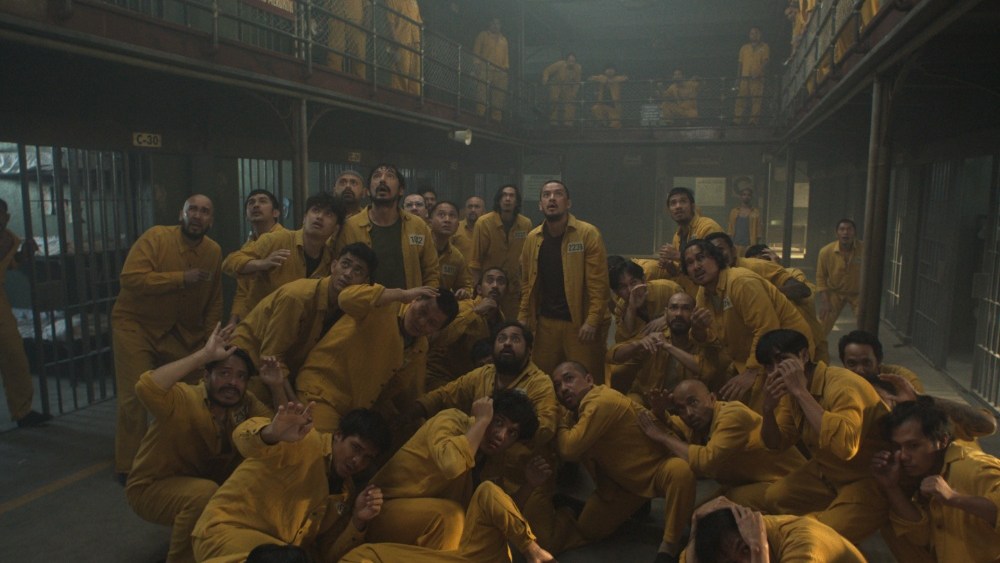Barunson E&A, the production and distribution studio behind “Parasite,” reaffirmed that sharply rising production costs and slowing film revenue in Korea are driving local producers to pivot towards global co-production.
Yoonhee Choi, CEO of Barunson E&A, noted the challenge facing the industry at a seminar on international co-production at TIFFCOM, the market arm of the Tokyo International Film Festival.
“In Korea, the film industry has been struggling, and at the same time, the production costs have risen significantly,” said Choi. “As labor costs and general prices have gone up, average production costs have increased across the board. Since the profit from films has decreased, these investments are becoming more difficult.”
The studio has expanded its business into international markets, with a slate of completed films from Taiwan (“Miss Shampoo”), Vietnam (“Don’t Cry Butterfly”) and Indonesia (“Rangga & Cinta”).
Of particular interest to Barunson E&A is the Indonesian market.
“The country we have been working with the most recently is Indonesia. The reason is that Indonesia is currently the fastest-growing country in the world, and it still has a lot of room for further growth,” said Choi.
“Many talented new directors are emerging in Indonesia. In the past, the genres of successful films were limited to horror, religious dramas, and so on, but recently there is a demand for diverse films, and new talented directors who bring us such projects,” she added.
To solidify its commitment, the company recently signed a two-year slate deal with acclaimed Indonesian director Joko Anwar. Barunson E&A is handling overseas sales for the director’s upcoming “Ghost in the Cell.”
Together with fellow panellist, Japanese producer Kawai Shinya (“Ring,” “Yi Yi”), Choi also offered insights into the sophisticated campaign strategy that propelled “Parasite” to become the first non-English-language film to win Best Picture.
“From the start, we chose overseas distributors that could participate in the Oscar campaign, companies with the experience, the passion and the will to somehow elevate this film,” said Choi. “After winning the Palme d’Or at the Cannes Film Festival, we immediately started the Oscar campaign in collaboration with the U.S. distributor Neon.
“The Academy campaign is almost like an election campaign. We constantly had to create a justification and basis for Academy to vote for this film. At the time, there was a great drive towards diverse films in the U.S., and director Bong Joon Ho ran a very compelling campaign targeted at Academy members, which I believe contributed to the success.”
Kawai offered a stark counterpoint, reflecting on the inexperienced mistakes that led to the failure of the Academy Awards campaign in 2000, for Edward Yang’s “Yi Yi: A One and a Two,” which had won best director at Cannes.
Despite the film’s critical acclaim, Kawai realized too late that the film was ineligible for the Academy Awards.
“After we won best foreign film from the LA Film Critics Association, I looked at the Academy Award requirements and found a stipulation that a film must be screened for at least two weeks in its home country by the end of December,” said Kawai. “It was already late when I found out, but we decided to try anyway. We hastily screened Edward Yang’s film for one run in Shibuya in December.”
Despite the effort, the film failed to be nominated for the Academy Award because of another technicality.
“We had considered it a co-production, and since the producer was Japanese and most of the financing was Japanese, we thought it would be defined as a Japanese film,” continued Kawai. “However, ultimately, because the director was Taiwanese and most of the locations were in Taiwan, it was judged to be a Taiwanese film. Since it had not been screened in Taiwan, it was deemed ineligible.”
Kawai also had choice words for Japan’s unique Production Committee (seisaku Iinkai) financing system, where committees of companies with gather to invest and share risks.
Kawai was a lead producer for the 2004 film “Rikidozan”, which was planned as a JPY700 million ($4.5 million) co-production evenly split between Japan and Korean investors.
“As the script was being developed, one of the five companies in the Japanese Production Committee said the story was bad. The biggest investor said they absolutely couldn’t do it and pulled out. When one member of the Production Committee pulls out, everyone else pulls out. I felt terrible for the Korean side at that time, but all of Japan’s half of the money ended up being covered entirely by the Korean side, CJ.” said Kawai.
He lamented the inability for quick decision making under the Production Committee system.
“You need the ability to immediately answer, a producer who can make a judgment. The Production Committee system, on the other hand, requires unanimous agreement to move forward. It has its advantages, like risk hedging and using your own media companies for promotion, but when working with overseas partners, issues like speed always arise.”


AloJapan.com